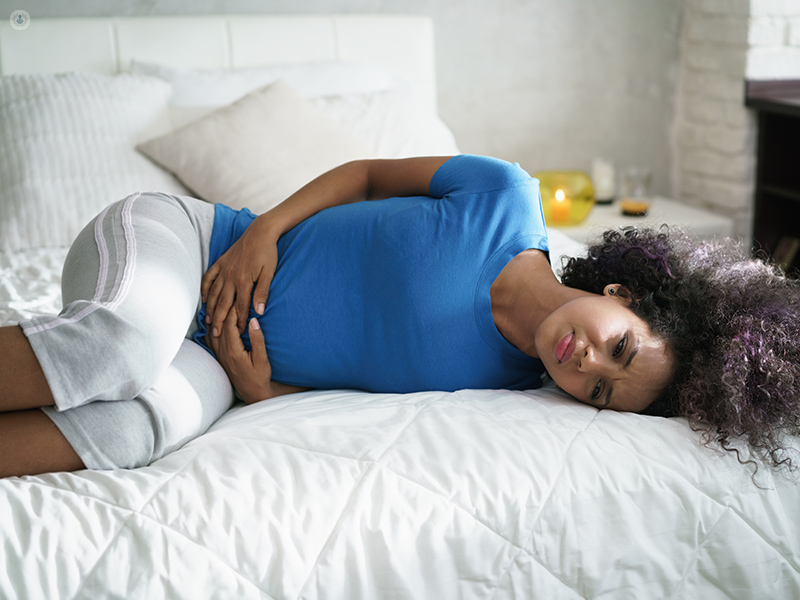How to relieve symptoms of IBS
Written by:The cause of irritable bowel syndrome (IBS) is not entirely understood. In IBS, the gut appears normal, with no inflammation or any abnormal findings on investigation. IBS is sometimes called a “functional” disorder because symptoms are thought to be caused by the way in which the gut works, for example, the passage of food through the gut may be either too slow or too quick.

In addition, the gut may be oversensitive to distension by either gas or food content, causing pain or discomfort. The symptoms of IBS may be exacerbated by certain foods or stress. Here to tell us more about IBS and how we can manage it is Dr John Martin.
What are the most common symptoms that people complain of?
- Abdominal pain, often in the lower abdomen, that is relieved by defecation
- Constipation, diarrhoea, or a mixture of the two
- Abdominal bloating
- Flatulence
- Food intolerance
- Passage of mucus in the stool
- Urgency to visit the toilet to pass stools
- Fatigue
- Headaches
- Needing to pass urine more frequently
- Backache
- Painful sex
- Anxiety and depression
How can I relieve my symptoms?
Symptoms of IBS can be very varied, so it is extremely important to tailor any treatment to the individual patient. General measures, such as reassurance that symptoms do not signify a serious underlying disease, and lifestyle advice, including increasing physical activity and changes in diet, can often be extremely helpful.
If necessary, there are a variety of simple medications that can be used to reduce abdominal pain or to normalise bowel habit from either diarrhoea or constipation. As an alternative to medical therapy, formal dietary advice, psychological approaches, such as counselling or behavioural therapy and, in some cases, alternative medical therapies, such as hypnotherapy, can be beneficial. In more severe cases, low doses of antidepressants may desensitise the gut and reduce symptoms.
What foods can I eat?
You can eat any food with IBS without causing harm. Seven in ten patients with IBS, however, exhibit food intolerance and eating certain foods will precipitate symptoms. These are not true allergies, so there is no proven benefit in formal food allergy testing for patients with IBS. The general advice is to eat regularly and avoid large meals, alcohol, caffeine and fizzy drinks. Keeping a food diary to identify particular foods that precipitate symptoms, and hence avoid them, can be extremely useful.
Some patients, particularly those with diarrhoea and abdominal bloating, may benefit from avoiding gas-producing foods such as beans, cabbage, dried fruit or onions, and bloating is often helped by eating porridge (oats) or linseed. Some patients improve after avoiding dairy products, artificial sweeteners or chewing gum and may also be helped by eliminating gluten, even if they do not have a formal diagnosis of coeliac disease.
Your doctor can give you dietary advice, but for some, it is helpful to do this more formally by consulting a dietician. In this case, the most common approach is to use a low FODMAP diet, in which foods most likely to cause symptoms are completely restricted and then slowly reintroduced to identify the most significant precipitants.
Can IBS be cured?
Unfortunately, IBS is a chronic condition and most patients will continue to have some symptoms that vary in severity over time. The symptoms in a third to a half of patients will remain unchanged, they will worsen in a small number, and in up to four in ten patients the symptoms will improve. Patients may also experience a change in their IBS symptoms over time, most frequently from predominantly constipation or diarrhoea to mixed bowel habits.
If you or someone you know is struggling with IBS, get in touch with Dr John Martin, who has over 25 years of experience in the field of gastroenterology.


